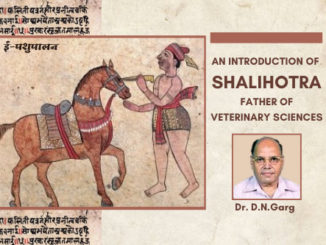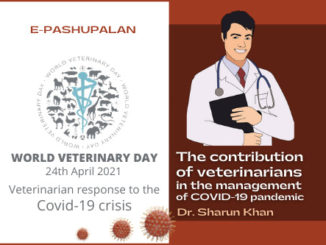Currently, we are experiencing the worldwide pandemic, due to the contagious coronavirus disease 2019 (COVID-19) caused by severe acute respiratory syndrome coronavirus type 2 (SARS-CoV-2), which originated in Wuhan, China in late 2019, which has paced unabated around the globe, causing unsettling interference of the social infrastructure, wreaking catastrophe on the world economy and global health care systems. Despite the colossal research endeavour of the scientific community around the world, there are still many uncertainties to unveil. As per reports to date, virus genome sequencing and evolutionary analysis suggest that the SARS-CoV-2 originated from bat populations, and thus, transmission to humans was feasible either directly from bats to humans or indirectly through an unspecified intermediate host. Although the pandemic is the consequence of the expeditious and effective person-to-person spread of the virus in a large population, the fact that animals are associated in the genesis of COVID-19 and possibly even in the maintenance of SARS-CoV-2 in the human population argues for a multidisciplinary and multilateral One Health partnership and a much stronger enactment of the same. The importance of veterinarians, especially in the diagnosis of emerging diseases, explanation of disease dynamics and initiation of effective collaborative control and disease management at national and regional levels is a good ground to break down the interdisciplinary barriers that still separate human from veterinary medicine and both from ecological, evolutionary, and environmental sciences. Advocating One Health outlook could be the premier method against COVID-19 considering SARS-CoV-2 zoonotic origin.
Veterinarians’ contributions to the management of the COVID-19 pandemic crisis
Given the animal origin of COVID-19 and the predominance of zoonoses infections, the veterinarians’ plays an important role in dispensing their expertise in animal and disease surveillance to prevent disease outbreaks, including zoonotic diseases. They possess vast experience and expertise in dealing with the circulation of pathogenic viruses among wild animals (epidemiological surveillance) and with epidemics caused by emerging or exotic pathogens introduced into fully sensitive animal populations. This helps strongly to both the study of SARS-CoV-2 animal reservoirs and the application of sampling strategies used for the surveillance of animal epidemics and adaptation to the COVID-19 epidemic.
The contribution of veterinarians from a One Health approach can be anticipated and substantiated through different levels of expertise, such as viral epidemiological surveillance of wildlife, management and control of past animal epidemics, laboratory diagnosis and characterisation of pathogens including SARS-CoV-2, the processing of human and animal COVID-19 tests, animal research and developing vaccines for humans and animals. Veterinarians can fruitfully and proactively interface with the human health sector to deal with COVID-19 or future pandemics and work in the same epidemiological surveillance program.
It is reported that about 75% of infectious pathogens in humans are zoonotic in origin. To forecast and prevent future pandemics caused by other emerging viruses, it is, therefore, necessary to understand their origin, distribution and evolutionary diversity in reservoir species and to point out hotspots that could help target them for proactive zoonotic disease surveillance. The role of veterinarians especially veterinary virologists, with their study of virus evolution, mainly the circulation and pathogenesis of viruses in domestic and wild animals, is crucial for coordinating integrated surveillance studies on the etiology of viral zoonoses and their impact on the health of animals, humans, as well as the ecosystem. Essential information can be obtained from these studies to explain their role as emerging and zoonotic pathogens, streamline the viral surveillance in reservoir populations, address the drivers of disease emergence and calibrate pandemic preparedness.
Many of the past epidemics of infectious and contagious diseases (e.g. foot and mouth disease etc.) and Zoonoses (e.g. avian and swine flu, brucellosis etc.) are being controlled efficiently by veterinarians by application of their vast extensive field experience. They have developed a special aptitude to perform promptly a varied activity, such as diagnosis, epidemiological investigations, molecular/antigenic characterization, planning of surveillance programs. The overall focus is to contain the epidemic at a preliminary stage and to minimise economic losses. Because of the expertise gained by veterinarians in the epidemiology of diseases within populations using active and passive surveillance systems and risk analysis, veterinarians might provide a valuable contribution of knowledge to public health for the control of infection in humans.
The global health care capacity has been wreaked and severely stressed out due to the COVID-19 pandemic. With hospitals being weighed down due to the overloading of patients, urgent issues came to the fore such as the lack of equipment and materials, disposable personal protective gear, and the massive workload of COVID-19 tests. Veterinarians play an important One Health role during the calamity to support the heavy workload of public health laboratories, veterinary laboratories in many countries. They are associated with carrying out SARS-CoV-2 testing of human samples and have jointly developed common diagnostic and data exchange protocols, and provided masks and other protective materials to hospitals/ clinics and key equipment such as respirators, RT- PCR machines etc.
Veterinarians can support the government in defining a COVID-19 risk strategy for international air travel by providing their experience in animal import risk assessment and. Animal import risk methodology needs to be frequently updated and adapted to COVID-19 prevalence estimate for countries to assess the impact of any further changes to international travel policy or disease occurrence to combat the same.
Advantages and challenges of opting One Health approach
Viral agents don’t know any boundaries or divisions and lack of appropriate response by one country makes global control and prevention less effective. To cope with the COVID-19 and similar threats with high socio-economic and health impacts, communication is the major key element to ensure swift movement of information within the surveillance systems, with data shared among veterinarians, physicians, and other professionals, between them and government functions, and externally with interested stakeholders and the general citizens, with the overall aim to develop evidence-based containment and mitigation policies.
One Health approach associates with the use of multi-sector and trans-disciplinary collaborative efforts that work from local, regional, national to global platforms to accomplish optimal health and well-being of people, animals, and plants in a shared ecosystem. Therefore, it aims to lower risk and mitigate the effects of health crises occurring at the junction between humans, animals, and their environments. A series of gaps related to communication, training, and financial resources need to be conquered for the efficient utilization of the One Health outlook. The triumph of communication depends on the cooperation between countries, and at the national level on the coordination of relevant experts, institutions and policymakers. Especially in developing countries like India, this approach will be beneficial as we combat against COVID-19, as it allows cost-sharing in an interdisciplinary field within the responsible ministries. Human and animal health sectors working apart are costlier than when the sectors work collaboratively and share resources for the greater good.
One Health laboratories are pivotal for researching to collect and share data and advance knowledge that will support reducing ambiguity in COVID-19 mitigation decisions. This outlook will lessen the social and economic impact of the COVID-19, through the collaboration of multiple sectors, which will help in controlling the pandemic situation.
In conclusion, veterinarian acts as a pivotal resource in the crisis of COVID-19. Besides, the execution of the One Health approach and veterinarians playing a key role alongside could be the remedy to the control of COVID-19. To fight this pandemic, the country’s ratification should act energetically considering the “One Health” by acting synchronously towards the welfare of human and animal health combinedly. Now more than ever, it is time to adopt, infuse in, and welcome the One Health approach because it can help with both the current COVID-19 pandemic and also alleviate the effects of other emerging infectious diseases.
Reference
- Gorbalenya, A.E., Baker, S.C., Baric, R.S., de Groot, R.J., Drosten, C., Gulyaeva, A.A., Haagmans, B.L., Lauber, C., Leontovich, A.M., Neuman, B.W. and Penzar, D. (2020). Coronaviridae Study Group of the International Committee on Taxonomy of Viruses. The species severe acute respiratory syndrome-related coronavirus: classifying 2019-nCoV and naming it SARS-CoV-2. Nat. Microbiol., 5(4): 536-544.
- Hoinville, L. J., L. Alban, J. A. Drewe, J. C. Gibbens, L. Gustafson, B. Häsler, C. Saegerman, M. Salman, and K. D. C. Stärk. (2013). Proposed terms and concepts for describing and evaluating animal health surveillance systems. Prev. Vet. Med,.1121–12.
- Leroy, E. M., Gouilh, M. A. and Brugère-Picoux, J. (2020). The risk of SARS-CoV-2 transmission to pets and other wild and domestic animals strongly mandates a one-health strategy to control the COVID-19 pandemic. One Health. 10: 100133.
- OIE Covid-19 Portal. 2021.






7 Trackbacks / Pingbacks